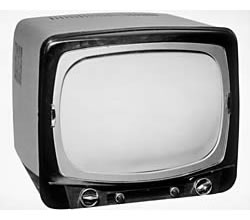 I was sick in bed with a really bad cold for most of the weekend. I alternated between sleeping, drinking lots of juice and water, watching a little TV (I’d never seen Good Will Hunting before) and a little light surfing on the laptop.
I was sick in bed with a really bad cold for most of the weekend. I alternated between sleeping, drinking lots of juice and water, watching a little TV (I’d never seen Good Will Hunting before) and a little light surfing on the laptop.
While poking about the web, I stumbled into a site I’d never seen before: the TV Tropes wiki. It started out as a catalogue of TV writing tricks of the trade, formulas and cliches, but has expanded slightly to incorporate movies, literature and even videogames. Here are just a few of the tropes you’ll find on this site:
- The “Falling in Love” Montage: Two characters are becoming romantically entwined. Their first date is shown normally and the audience is shown how amazingly compatible the couple is. A montage follows, usually with no dialogue and an upbeat or romantic soundtrack, showing the couple during a series of classic dates (the picnic, the carnival, the unexpected kiss, the meaningful eye contact, The Meadow Run, etc). The montage segues into the end of a date and the audience is shown just how in love the couple has become.
- Odd Couple: Mr Neat/Tidy/Law-Abiding/By-The-Book forced to work/live with Mr Messy/Slob/Zany/Risk-Taker/Plays-By-His-Own-Rules. The couple might be cops. See also: Salt And Pepper, Different As Night And Day. Compare Heterosexual Life Partners.
- We Want Our Jerk Back: A common Sit Com plot where the total ass learns his lesson, turns sweet and benevolent -– and becomes absolutely intolerable, making the other characters yearn for the original tool. Eventually the character in question will revert to normal, and the reaction will either be relief, or realisation that he really is worse in his obnoxious form. A subset of Flowers For Algernon.
- The Obi Wan: The protagonist is not the best at what he or she does. There is someone else — a friend or mentor — who is better, faster and more experienced. However, they aren’t the hero — the lights don’t dim and the music doesn’t swell when they enter the room. The goal of the Obi Wan is to pass the torch to the protagonist, before dying. Which they almost always do, then becoming a Spirit Advisor, either as a literal “spirit” or in flashback. If they don’t die, they will stick around giving advice, but not actively adventuring (unless Gondor Calls For Aid). The Obi Wan character, by having a mentor role, can also play Mr Exposition. In film, the Obi-Wan typically bites it at the end of Act 2, passing the torch to the young hero who then goes on to avenge his death. The Obi Wan is an Archetypal Character.
- Lampshade Hanging: Pointing out the use of a trope, as when a WWE announcer said “If I live to be 100, I will never understand why they keep so many damn weapons under the ring. It’s like they want the wrestlers to use them on each other!” Another example: when a character says something like “This idea is so crazy, it just might work!” or “I feel like I’m in a badly written TV show.”
If you don’t know where to start, go visit the wiki and hit the “Random Item” button at the top of the page, then start following links. It’s an entertaining read.